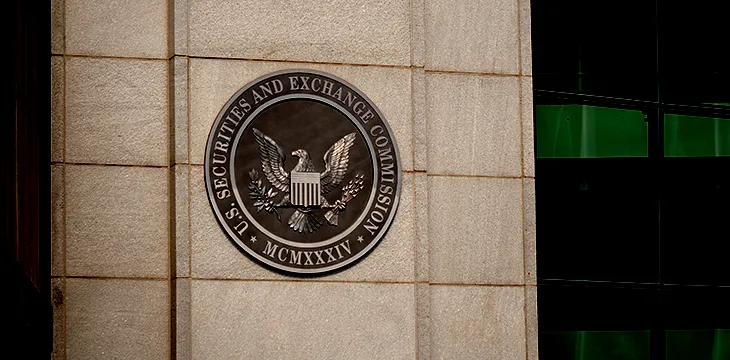|
Getting your Trinity Audio player ready...
|
At this point, any company looking to raise funds through an initial coin offering (ICO), when targeting U.S. investors, should just assume one fact. In doing so, they will protect themselves from a lot of grief and aggravation, and possible bankruptcy.
As far as the U.S. Securities and Exchange Commission (SEC) is concerned, virtually all ICOs are selling securities, guilty until proven innocent. If companies would simply realize this and treat their offerings like securities, there wouldn’t be blowback on the part of the commission. Unfortunately, they don’t learn, and Dropil is the latest company to find out how serious the SEC is in keeping control of the digital currency ICO sector.
Dropil wants to introduce its own decentralized exchange (DEX), the Dropil DEX, which would offer automated trading and management systems. That led to the company launching an ICO two years ago that ultimately saw it attract around $2 million in investments. The individuals behind the Ethereum-based platform may have assumed they wouldn’t be called out by the SEC, but the commission has proven them wrong.
The investments being collected were reportedly going to be used to fund three risk strategy pools, manned by automated bots that would trade across a handful of exchanges and digital currencies simultaneously to increase profits. This, according to the SEC, is the same as a security and, therefore, the company’s founders and principles were in violation of existing securities laws. To avoid the SEC’s wrath, those principals should have tried to register as broker-dealers.
However, that’s only one of the complaints against Dropil, and the other complaints wouldn’t have protected them. The SEC filing (in pdf) asserts that the company misrepresented its performance and success rates, and that the names working behind the scenes “diverted the funds raised to other projects and to the founders’ personal digital asset and bank accounts.” For those allegations, having registered with the SEC wouldn’t have been enough to protect them.
The SEC explains, “In reality, the sale of DROPs during the ICO phase raised less than $1.9 million, not the $54 million claimed. There were only 2,472 investors, not the 34,000 claimed. Furthermore, there is no record that Dex, which Dropil promoted as a differentiating feature of DROPs, ever operated or generated any trading profits. The DROPs that Dropil distributed to investors as purported Dex trading profits were really just previously generated DROPs that Dropil had retained or funds generated from additional sales of DROPs on third-party digital asset trading platforms after the ICO phase.”
Coming up next for the principles is a permanent injunction that prohibits them from being a part of the ICO in any capacity, disgorgement and civil penalties. It’s also possible that they could face additional civil complaints introduced by the investors who handed over their hard-earned money.

 07-14-2025
07-14-2025 





